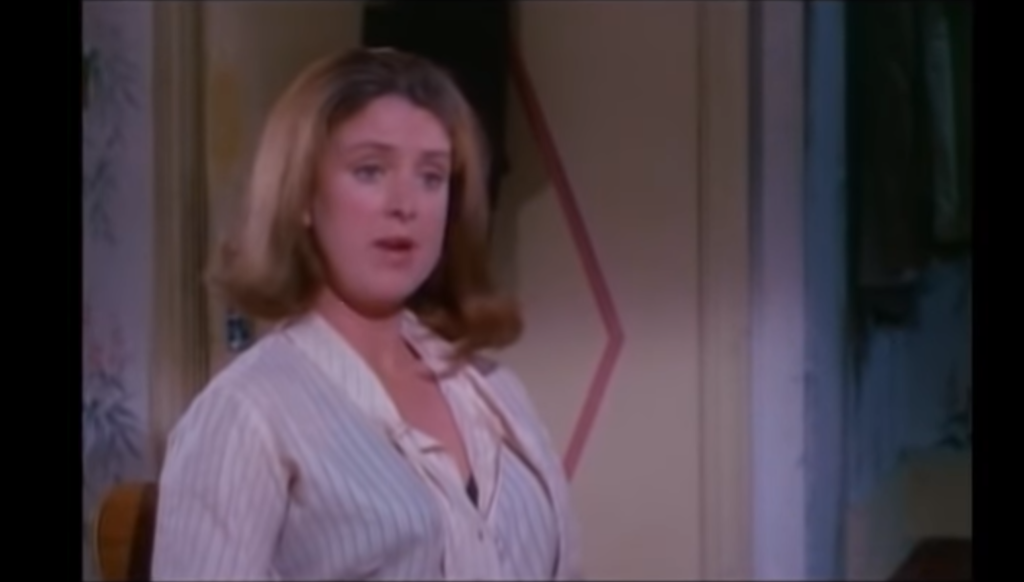|
Genres, Themes, Actors, and Directors:
- Cross-Class Romance
- Gene Wilder Films
- Ireland
- Margot Kidder Films
- Nonconformists
Response to Peary’s Review:
I tend to be suspicious of movies centered on charismatic nonconformists; it’s too obvious that audience members are supposed to root for the “underdog”. Fortunately, this isn’t a problem with Gene Wilder’s “Quackser Fortune” (so nicknamed because he used to quack like a duck as a child), whose individuality comes across as genuine and utterly lacking in derivative pathos. As Peary notes, this “offbeat and amiable” film features “fine performances by the two leads”, and is helped by the “unexpected touch” of having Quackser “benefit from the relationship [with Kidder] rather than feeling self-pity or animosity toward her.” Quackser remains a true individual until the end, refusing to be put down by anyone of any class.
Redeeming Qualities and Moments:
- An uncharacteristically subdued performance by Gene Wilder

- Eileen Colgen as the lonely spinster who is disappointed when Quackser no longer stops by for tea and sex

- Fine cinematography of pre-EU Dublin

Must See?
No, though it’s a delightfully unusual movie and well worth checking out, especially for Gene Wilder fans.
Links:
|
2 thoughts on “Quackser Fortune Has a Cousin in the Bronx / Fun Loving (1970)”
First viewing. Boredom galore. Though Wilder is engaging elsewhere, here he is saddled with a character written in a schizophrenic manner, ping-ponging inexplicably between being attracted to Kidder’s character and finding her a ‘bitch’. Wilder’s Irish accent is problematic, his family members all fit each other–but not him, and his character’s tendency to sing in a ‘dee-dee-dum’ manner is annoying. At 88 min., the film feels endless, with many stretches serving just that–to stretch the thin, often tedious script. We learn nothing about Kidder’s character except that she’s… ‘enigmatic’. As a film, ‘Quackser’ seems included here for Kidder’s physical appeal (as opposed to her character or acting). I guess it shows that I don’t consider this one a must.
Interesting how different our take on this film was — I’ve found Gene Wilder insufferably over-the-top in other films, so I think I was impressed by how toned down he was here. Your point about Kidder is well-taken — in fact, Peary often seems to include titles in his book simply because of his attraction to their female stars. Nothing wrong with this when it comes to personal viewing choices, of course, but it doesn’t necessarily translate well when making broader recommendations for others.